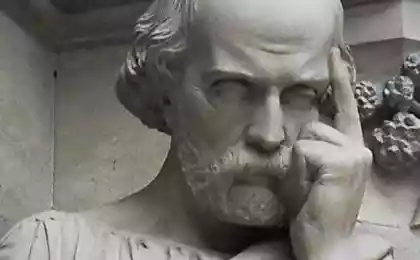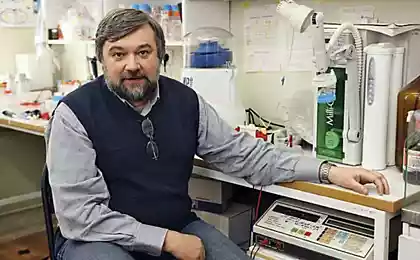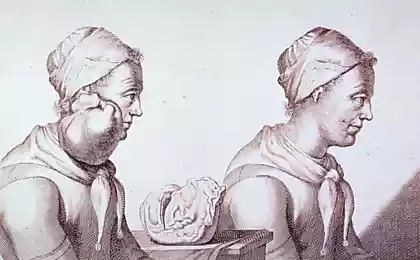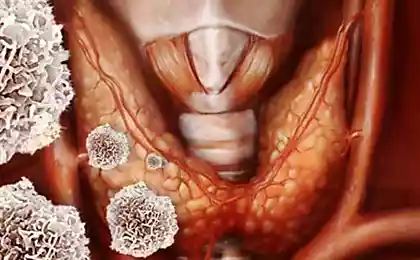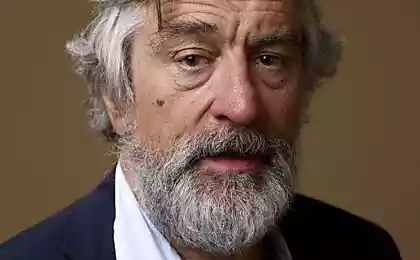638
Cancer is a symptom, not the disease
Ever since Richard Nixon officially declared the war on cancer by signing the American cancer act, over a hundred billion dollars of taxpayers ' money was spent on research and development of drugs in an attempt to destroy the disease, with trillions more spent patients themselves, but the results remain disappointing.

Understanding of the nature of cancer is fundamentally wrong?
Even after forty years of maintaining the complex "traditional" (surgery and chemotherapy) and nuclear (radiotherapy) war against cancer, one in four diagnosed with the disease – and, according to forecasts, the number of cases will continue to grow steadily.
Maybe this spectacular failure reflects the fact that the nature of cancer has been interpreted wrong, with the wrong and our attempts to prevent or cure it? Not so long ago it was revealed that acidosis is a harbinger of cancer, although before this nothing was known.
So, the question that again needs to be answered: what is cancer?
Perhaps we should return to the fundamental question: what is cancer? In the end, until we don't find an exact answer, all attempts to "prevent" or "treat" a disease which we do not understand are doomed to failure.
Over the past half century, the "mutational theory" has provided the prevailing explanation of the causes of cancer development, according to which the accumulated mutations within our cells lead certain particularly vulnerable to the "madness." Them "insane" and "distorted" behavior is the result of many devastating phenomena in the DNA, which usually supports their "civilized" activity relative to the huge multicellular community as a whole – the body.
From this point of view, these cells rogue continuously multiply and form a tumor, in various ways simulating the characteristics of infectious processes in the host organism as long as the tumor does not jeopardize vital process that will eventually lead to death.
According to this hypothesis, which was strongly influenced by Darwin's theory of evolution (sometimes called "internal Darwinism" that drives the evolution of healthy cells to malignant), and this process is very similar to natural selection, i.e. random mutations beneficial to the survival and reproduction of cancer cells in the tumor.
DNA damage can occur through inheriting defective DNA sequences ("bad genes"), and under the influence of destructive chemicals (e.g. tobacco) or radiation.
Although this view gives some explanation, it can also be incorrect. For example, one of the basic principles of evolution is that random mutations are almost always dangerous and lead to cell death. However, in this case cancer cells seem to be real "lucky".
Instead of die like normal cells, when faced with random mutations, they demonstrate the opposite reaction: become immortal, unable to undergo programmed death, as it happens with healthy cells.
Then, whether the basis of the transformation of healthy cells into cancer is the randomness and chaos? Tumor cells, in the end, show highly organized behavior, so it seems impossible the fact that they encourage such completely random forces like mutation...
Cancer cells (tumor or tumors), for example, are able to build their own blood supply (angiogenesis), are able to defend themselves by silencing cancer-suppressing gene and by activation of genes-the initiators of tumors, the release of enzymes aggression to move freely throughout the body, they are able to change their metabolism to live in an environment with low oxygen content, high sugar content and high acidity, and also know how to remove their own surface receptors, to avoid detection by white blood cells.
Can these complex behavioral patterns to be the result of random mutations? And is it possible that random mutations can lead to the formation of those same "successful" set of genetic properties, each time in the human body the formation of new forms of cancer?
Random mutations undoubtedly play an important role in the initiation and promotion of cancer, but just them alone is not enough for the full explanation.
Cancer as an ancient survival program
An extraordinary theory presented by scientists from Arizona state University Paul Davies, scientists from the Australian national University Charles Lineweaver, will help to shed much needed light on the true nature of cancer.
"Cancer is not a random accumulation of selfish cells-the rogue with a bad behavior and a highly efficient pre-programmed response to stress, honed by a long period of evolution."
In his seminal work, entitled "Cancer tumors as Metazoa 1.0: genes ancestors" Davis and Lineweaver suggested that cancer is an atavism, taken from genetic "Arsenal", which, at least a billion years, and which is still buried – normally dormant – deep within the genome of our cells.
Davis calls this a hidden genetic layer of multicellular 1.0. It contains paths and programs that were once necessary for our ancient cell precursors and their early proto-communities in order to survive in a completely different environment.
Without the highly differentiated cells and specialized organs of higher multicellular (Metazoa 2.0), cells with the genetics of Metazoa 1.0 would have the useful properties that allow them to survive direct contact with what would be a very different, more hard (for us) environment.
For example, a billion years ago oxygen levels in the atmosphere were extremely low, as yet not formed photosynthesis to produce its abundant supply. This means that cellular life at that time would have had to learn to grow in environment with low oxygen or oxygen free environment – this is what makes cancer cells using aerobic glycolysis to generate energy instead of oxidative phosphorylation.
Davis and Lineweaver summarized his opinion as follows:
"We assume that cancer is an atavism that occurs when genetic or epigenetic malfunction open an ancient Arsenal of existing fixtures, reducing the dominance of an earlier layer of genes that controlled loose colonies of only partially differentiated cells, similar to tumors. The existence of such a Toolkit implies that the progress of tumors (cancer) in the host organism is clearly different from the normal evolution of Darwin."
Instead of considering such a distinctive feature of cancer as a continuous propagation as the newly evolved properties that have neglected random mutation, it would have to be considered as cells "by default" generated a billion years ago, when "immortality" was a top priority.
Don't forget, this ancient collection of cells had no such differentiation of cell type and specialization of the tissues as in higher animals (i.e., skin, hair, nails, etc.), for protection against the harmful effects of the environment.
If the cancer is exposed to an ancient survival program, it does not mean that the "theory of mutation" does not contain element of truth. Genetic damage and mutations, in fact, contribute to the development of cancer, but instead to consider them as "causing" complex system behavior associated with cancer, it would be more accurate to assume that they detect already existing set of genetic programs (atavism).*
For example, we know hundreds of oncogenes that exist in our DNA and are common to a wide variety of species, including Drosophila, which shows how popular they are ancient (at least 600 million years) and universal (found in most multicellular organisms).
Under this new way of thinking, cancer can no longer be seen as some predefined gene-bomb, inherent in us, or just as a byproduct of cumulative exposure to genotoxic substances.
Rather, cancer is an ancient survival reaction in an increasingly toxic environment, unnatural diet and weakened immune systems. These cells have learned to survive with constant excessive stress, constantly heal itself (replication) and following the principle: what doesn't kill you makes you stronger.
Cancer can no longer be seen as something bad happening inside a healthy body. Cancer is the fact that the body actively in response to unhealthy cellular, physical, and planetary environment. Instead of physical abnormalities, it can be a physical expression of intelligence and the ability of our cells to survive in conditions that threaten to destroy them to a critical point beyond which survival is impossible.
It also sheds light on the destructive nature of chemo - and radiotherapy. Tumors contain a broad spectrum of cells, many of which, in fact, are benign (do not cause harm to the body), and some of them even keep more harmful cells.
Invasive cells are more primordial in their genetic configuration (Metazoa 1.0) due to the fact how much damage they have to endure throughout their life cycle. It is these cells that are most resistant to chemotherapy and less likely to die when exposed to them. Therefore, chemotherapy and radiation therapy kill cells that do not actually pose a threat.
Cancer is a symptom, not the disease
It is reasonable to consider cancer not as a "monolithic disease", and as a symptom of deteriorating cellular conditions and environmental conditions. In other words, the environment the cells become unfavorable for normal functioning, and to help her survive, the cell undergoes profound genetic changes, repeating the ancient genetic way that we associate with the cancer phenotype.
This "ecological" approach again returns our attention to preventable and treatable causes "disease" is vague and outdated concept of "defective genes" that we can't affect.
In fact, we need to shift our thinking from the point of view that cancer is something unnatural that happens to us, that where we see that cancer is a perfectly natural reaction of our body to survive unnatural conditions. Change these conditions for the better, and you will get much more than the cancer as the enemy.
* The concept of cancer as atavism can be explained in the following way: an atavism is an older genetic trait, a property that is no longer used, and therefore suppressed by newly evolved genes. As an example, can result in webbed fingers.
While we are in the womb, they are for everyone, but in the process of embryonic development and they disappear. This is done through a process of "programmed cell death", also known as apoptosis. The body simply involves apoptosis genes in tissues associated with membranes, and these cells are quietly dismantled itself, with the result that we have the usual, free from the webbed hands and feet. Most interesting is that cancer cells are cancerous because they do not die.
They either forgot how to undergo programmed death (apoptosis), or were forced due to injury (genetic damage) or environmental stress (epigenetic changes) to suppress genes that would allow them to die.
Cancer cells, in fact, copied from the ancient genetic Toolkit that their predecessors more than a billion years ago used to survive in very harsh conditions, and where replication was much more desirable property than death.
P. S. And remember, only by changing their consumption — together we change the world! ©
Join us in Facebook , Vkontakte, Odnoklassniki
Source: mixednews.ru/archives/49506

Understanding of the nature of cancer is fundamentally wrong?
Even after forty years of maintaining the complex "traditional" (surgery and chemotherapy) and nuclear (radiotherapy) war against cancer, one in four diagnosed with the disease – and, according to forecasts, the number of cases will continue to grow steadily.
Maybe this spectacular failure reflects the fact that the nature of cancer has been interpreted wrong, with the wrong and our attempts to prevent or cure it? Not so long ago it was revealed that acidosis is a harbinger of cancer, although before this nothing was known.
So, the question that again needs to be answered: what is cancer?
Perhaps we should return to the fundamental question: what is cancer? In the end, until we don't find an exact answer, all attempts to "prevent" or "treat" a disease which we do not understand are doomed to failure.
Over the past half century, the "mutational theory" has provided the prevailing explanation of the causes of cancer development, according to which the accumulated mutations within our cells lead certain particularly vulnerable to the "madness." Them "insane" and "distorted" behavior is the result of many devastating phenomena in the DNA, which usually supports their "civilized" activity relative to the huge multicellular community as a whole – the body.
From this point of view, these cells rogue continuously multiply and form a tumor, in various ways simulating the characteristics of infectious processes in the host organism as long as the tumor does not jeopardize vital process that will eventually lead to death.
According to this hypothesis, which was strongly influenced by Darwin's theory of evolution (sometimes called "internal Darwinism" that drives the evolution of healthy cells to malignant), and this process is very similar to natural selection, i.e. random mutations beneficial to the survival and reproduction of cancer cells in the tumor.
DNA damage can occur through inheriting defective DNA sequences ("bad genes"), and under the influence of destructive chemicals (e.g. tobacco) or radiation.
Although this view gives some explanation, it can also be incorrect. For example, one of the basic principles of evolution is that random mutations are almost always dangerous and lead to cell death. However, in this case cancer cells seem to be real "lucky".
Instead of die like normal cells, when faced with random mutations, they demonstrate the opposite reaction: become immortal, unable to undergo programmed death, as it happens with healthy cells.
Then, whether the basis of the transformation of healthy cells into cancer is the randomness and chaos? Tumor cells, in the end, show highly organized behavior, so it seems impossible the fact that they encourage such completely random forces like mutation...
Cancer cells (tumor or tumors), for example, are able to build their own blood supply (angiogenesis), are able to defend themselves by silencing cancer-suppressing gene and by activation of genes-the initiators of tumors, the release of enzymes aggression to move freely throughout the body, they are able to change their metabolism to live in an environment with low oxygen content, high sugar content and high acidity, and also know how to remove their own surface receptors, to avoid detection by white blood cells.
Can these complex behavioral patterns to be the result of random mutations? And is it possible that random mutations can lead to the formation of those same "successful" set of genetic properties, each time in the human body the formation of new forms of cancer?
Random mutations undoubtedly play an important role in the initiation and promotion of cancer, but just them alone is not enough for the full explanation.
Cancer as an ancient survival program
An extraordinary theory presented by scientists from Arizona state University Paul Davies, scientists from the Australian national University Charles Lineweaver, will help to shed much needed light on the true nature of cancer.
"Cancer is not a random accumulation of selfish cells-the rogue with a bad behavior and a highly efficient pre-programmed response to stress, honed by a long period of evolution."
In his seminal work, entitled "Cancer tumors as Metazoa 1.0: genes ancestors" Davis and Lineweaver suggested that cancer is an atavism, taken from genetic "Arsenal", which, at least a billion years, and which is still buried – normally dormant – deep within the genome of our cells.
Davis calls this a hidden genetic layer of multicellular 1.0. It contains paths and programs that were once necessary for our ancient cell precursors and their early proto-communities in order to survive in a completely different environment.
Without the highly differentiated cells and specialized organs of higher multicellular (Metazoa 2.0), cells with the genetics of Metazoa 1.0 would have the useful properties that allow them to survive direct contact with what would be a very different, more hard (for us) environment.
For example, a billion years ago oxygen levels in the atmosphere were extremely low, as yet not formed photosynthesis to produce its abundant supply. This means that cellular life at that time would have had to learn to grow in environment with low oxygen or oxygen free environment – this is what makes cancer cells using aerobic glycolysis to generate energy instead of oxidative phosphorylation.
Davis and Lineweaver summarized his opinion as follows:
"We assume that cancer is an atavism that occurs when genetic or epigenetic malfunction open an ancient Arsenal of existing fixtures, reducing the dominance of an earlier layer of genes that controlled loose colonies of only partially differentiated cells, similar to tumors. The existence of such a Toolkit implies that the progress of tumors (cancer) in the host organism is clearly different from the normal evolution of Darwin."
Instead of considering such a distinctive feature of cancer as a continuous propagation as the newly evolved properties that have neglected random mutation, it would have to be considered as cells "by default" generated a billion years ago, when "immortality" was a top priority.
Don't forget, this ancient collection of cells had no such differentiation of cell type and specialization of the tissues as in higher animals (i.e., skin, hair, nails, etc.), for protection against the harmful effects of the environment.
If the cancer is exposed to an ancient survival program, it does not mean that the "theory of mutation" does not contain element of truth. Genetic damage and mutations, in fact, contribute to the development of cancer, but instead to consider them as "causing" complex system behavior associated with cancer, it would be more accurate to assume that they detect already existing set of genetic programs (atavism).*
For example, we know hundreds of oncogenes that exist in our DNA and are common to a wide variety of species, including Drosophila, which shows how popular they are ancient (at least 600 million years) and universal (found in most multicellular organisms).
Under this new way of thinking, cancer can no longer be seen as some predefined gene-bomb, inherent in us, or just as a byproduct of cumulative exposure to genotoxic substances.
Rather, cancer is an ancient survival reaction in an increasingly toxic environment, unnatural diet and weakened immune systems. These cells have learned to survive with constant excessive stress, constantly heal itself (replication) and following the principle: what doesn't kill you makes you stronger.
Cancer can no longer be seen as something bad happening inside a healthy body. Cancer is the fact that the body actively in response to unhealthy cellular, physical, and planetary environment. Instead of physical abnormalities, it can be a physical expression of intelligence and the ability of our cells to survive in conditions that threaten to destroy them to a critical point beyond which survival is impossible.
It also sheds light on the destructive nature of chemo - and radiotherapy. Tumors contain a broad spectrum of cells, many of which, in fact, are benign (do not cause harm to the body), and some of them even keep more harmful cells.
Invasive cells are more primordial in their genetic configuration (Metazoa 1.0) due to the fact how much damage they have to endure throughout their life cycle. It is these cells that are most resistant to chemotherapy and less likely to die when exposed to them. Therefore, chemotherapy and radiation therapy kill cells that do not actually pose a threat.
Cancer is a symptom, not the disease
It is reasonable to consider cancer not as a "monolithic disease", and as a symptom of deteriorating cellular conditions and environmental conditions. In other words, the environment the cells become unfavorable for normal functioning, and to help her survive, the cell undergoes profound genetic changes, repeating the ancient genetic way that we associate with the cancer phenotype.
This "ecological" approach again returns our attention to preventable and treatable causes "disease" is vague and outdated concept of "defective genes" that we can't affect.
In fact, we need to shift our thinking from the point of view that cancer is something unnatural that happens to us, that where we see that cancer is a perfectly natural reaction of our body to survive unnatural conditions. Change these conditions for the better, and you will get much more than the cancer as the enemy.
* The concept of cancer as atavism can be explained in the following way: an atavism is an older genetic trait, a property that is no longer used, and therefore suppressed by newly evolved genes. As an example, can result in webbed fingers.
While we are in the womb, they are for everyone, but in the process of embryonic development and they disappear. This is done through a process of "programmed cell death", also known as apoptosis. The body simply involves apoptosis genes in tissues associated with membranes, and these cells are quietly dismantled itself, with the result that we have the usual, free from the webbed hands and feet. Most interesting is that cancer cells are cancerous because they do not die.
They either forgot how to undergo programmed death (apoptosis), or were forced due to injury (genetic damage) or environmental stress (epigenetic changes) to suppress genes that would allow them to die.
Cancer cells, in fact, copied from the ancient genetic Toolkit that their predecessors more than a billion years ago used to survive in very harsh conditions, and where replication was much more desirable property than death.
P. S. And remember, only by changing their consumption — together we change the world! ©
Join us in Facebook , Vkontakte, Odnoklassniki
Source: mixednews.ru/archives/49506


